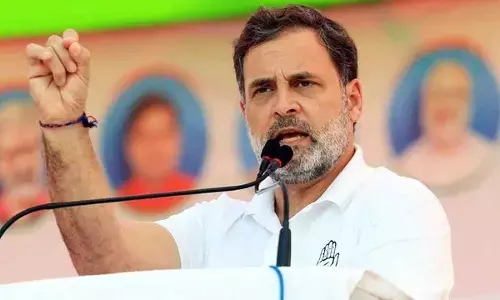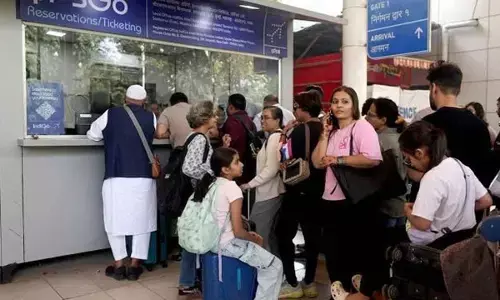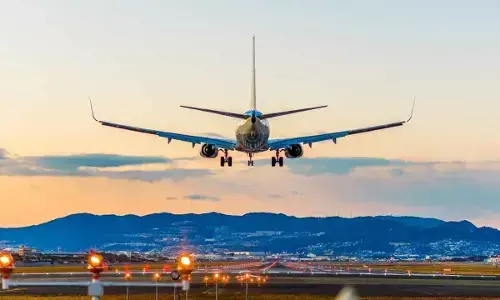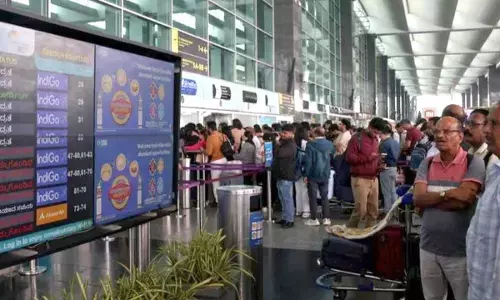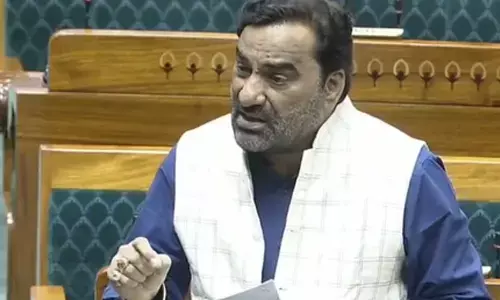Bonjour India's 'City for All?'shows the way to make your city inclusive
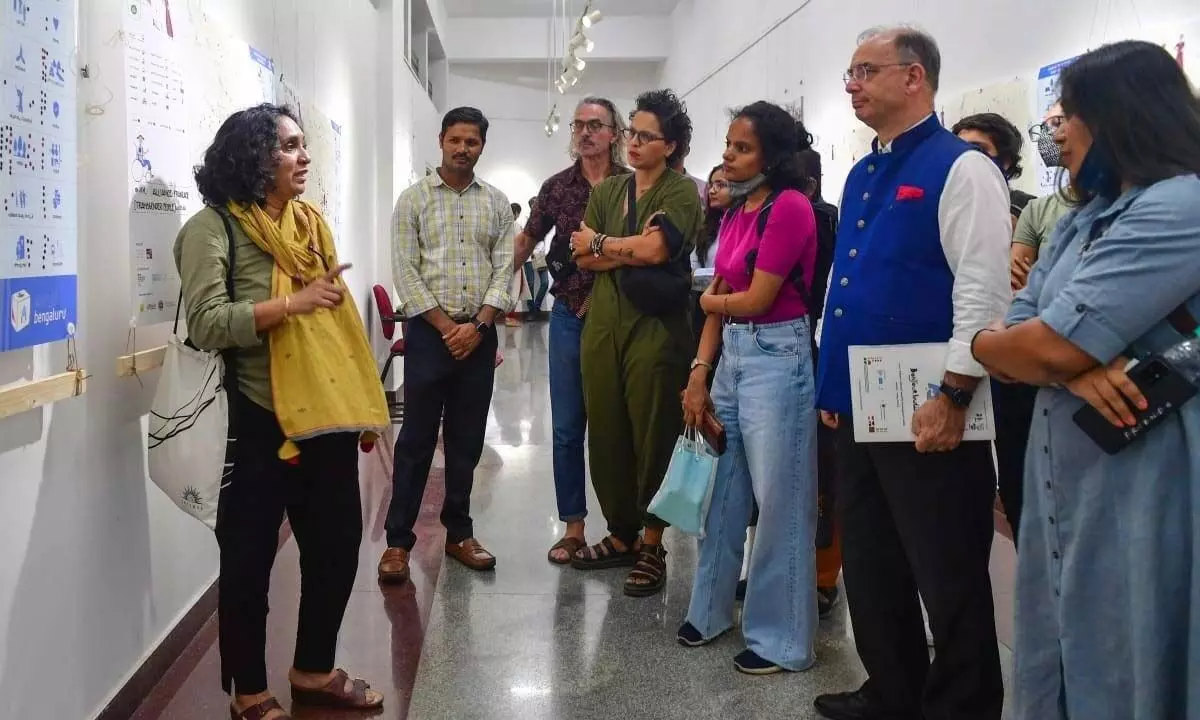
Bonjour India’s ‘City for All?’shows the way to make your city inclusive
As part of Bonjour India, the recently concluded City for All? exhibition showed how Bengaluru’s public spaces could be made more welcoming to women and transgender people.
Bengaluru: As part of Bonjour India, the recently concluded City for All? exhibition showed how Bengaluru's public spaces could be made more welcoming to women and transgender people. The City for All? exhibition endeavours to make public spaces in Indian cities more accessible to women and transgender people by engaging the masses in public art projects. The exhibition at Bengaluru's Rangoli Metro Art Centre was the climax of the fifth leg of this exhibition where visitors discovered novel solutions that can make public spaces more accessible to women and transgenders. The exhibition is part of Bonjour India, an artistic, cultural, educational, and literary initiative by the Embassy of France and its cultural service, InstitutFrancaisenInde, the Alliance Francaise network, and the Consulates of France in India.
The week before the exhibition, a pin-up map of Bengaluru travelled across six Bengaluru neighbourhoods. The diversity of the chosen neighbourhoods allowed people from different backgrounds to participate in an activity: pinning coloredbindis on locations where they would like to go with family and friends. This led to discussions about what makes a public space inclusive for different groups of people. Participants were asked a pressing question: Who are our cities designed for? They were also asked questions they had never thought of before, such as: Who has the right to leisure in their cities? How can women and transgender people feel welcome, comfortable, and secure in public spaces? What barriers do transgender people encounter when they try to occupy public spaces? How can access to public spaces be increased for people of all ages, genders, sexual preferences, classes, and abilities? What do they consider to be an ideal public space? When participants were posed these questions and found answers to them through discussions, what emerged was a way to rethink the public spaces in Bengaluru such that they become more accessible to women and transgender people.
These maps were exhibited, accompanied by dialogues and stories that emerged from Bengaluru neighborhoods. Visitors engaged with the exhibition through an interactive public wall, resulting in more discussions around inclusive public spaces. Visitors also clicked lifelike selfies in a photo booth with popular local and French landmarks in the background.
Referring to the City for All? project and exhibition, architect and artist Swati Janu said, "Cities across the world have largely been designed by fully grown, able-bodied, cis-heterosexual men. Hence, women and transgender people must navigate in urban worlds that were never created with their needs in mind. We need to look more closely at urban landscapes and figure out how they can be thoughtfully designed, considering the concerns, comfort, safety, and representation of women, non-binary and transgender people. Doing so demands a nuanced approach, for example - renaming our streets to also acknowledge the work of women and transgender persons, breaking beyond the binary of signage only for men and women, making public transport safe and accessible to all - regardless of age and abilities - and including gender-neutral public toilets or at the very least toilets for transgender people. We are certain that from City for All? collective solutions will appear that help us radically change the design of our cities and also our mindsets. With some hard work, a few years down the road, urban spaces across India and France will look quite different than they do today."
Speaking about the exhibition, Randrianampizafy J Christian, Director of Alliance Francaise Bengaluru said, "Every Bengalurean takes pride in Bengaluru whose wealth of talent have made it a global IT powerhouse. Also, Bengaluru's lush gardens and well-developed cityscape house some of the most attractive public spaces in India. The City for All? exhibition showed Bengalureans how their city's public spaces could become more welcoming to women and transgender people. The exhibit evoked considerable interest among all visitors. It had never crossed the mind of many that their city's public spaces were not as welcoming as they should be. But once they understood which facets of public spaces made women and transgender people feel excluded, they were enthusiastic about making whatever changes were necessary. The exhibition was a huge success because over the next few months, all who attended will discuss with each other and with friends and family how their city can have public spaces that are welcoming to everyone. If all goes as planned, public spaces in the city will be transformed such that they are more accessible to all Bengalureans."








